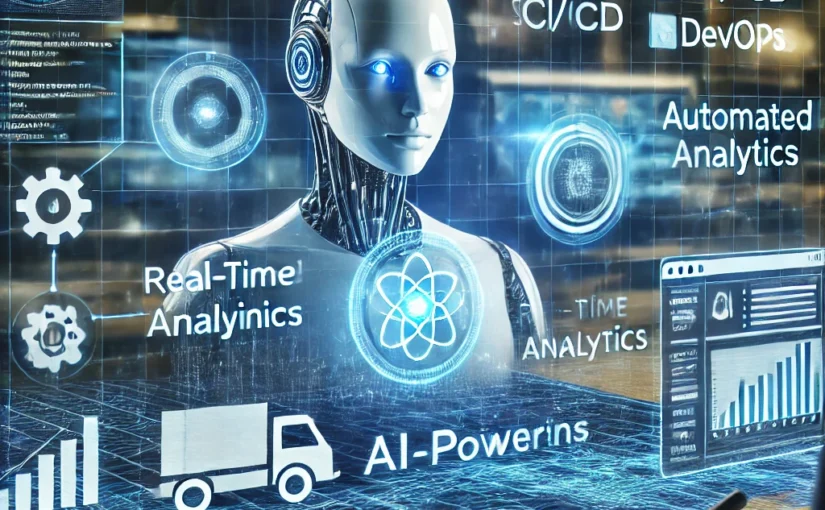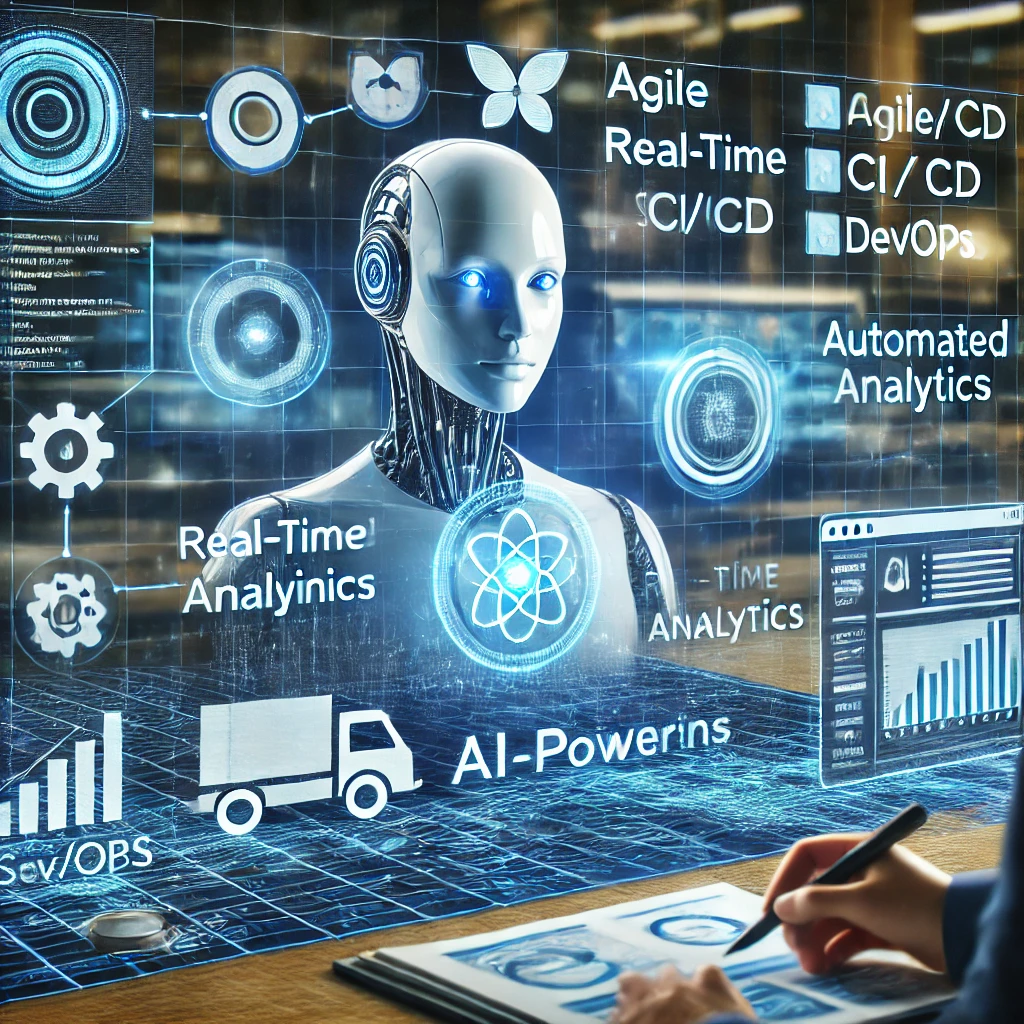AI isn’t just changing how we write code—it’s changing how businesses operate. From startups building MVPs to enterprise teams launching internal tools, AI software development agents are creating serious value where it matters most: speed, scale, and simplicity.
In this article, I’ll break down how these agents are helping businesses move faster, reduce costs, and build software with less friction and more confidence.
Speed: From Idea to App in Days, Not Months
Time is money. Whether you’re launching a new product or updating internal systems, speed matters.
✅ Traditional way:
- Requirements meetings
- Tech specs
- Developer onboarding
- Weeks (or months) to build version 1
✅ With AI agents:
- Describe the app
- Define the data model
- Click “Generate”
- Get a working product in a day or two
Flatlogic AI, for example, lets you build full-stack apps with login, roles, and database in minutes. For most businesses, this means weeks saved on dev work, and faster time-to-market.
Scale: Build More with Smaller Teams
In a world where developer time is limited and expensive, AI agents help businesses do more with less.
Imagine:
- A 3-person dev team supporting a growing SaaS
- A product manager who can spin up prototypes without devs
- A designer launching interactive dashboards without touching backend code
That’s not a future fantasy. That’s what AI platforms like Flatlogic AI, GitHub Copilot, and Tabnine are enabling today.
Your team stays lean. Your output multiplies.
Simplicity: No More Reinventing the Wheel
Every product starts the same way:
- Authentication
- CRUD APIs
- Role management
- Basic frontend components
- A database schema
Why rebuild those from scratch every time?
With AI agents, you don’t. These repetitive, low-risk patterns are now automated, so your team can focus on what actually differentiates your business.
Flatlogic AI gives you the foundation—then you build on top with custom logic, design, and integrations.
Real-World Business Wins with AI Agents
Let’s break down a few real-world benefits businesses are already seeing:
| Company Type | Before AI Agents | After Using AI Agents |
|---|---|---|
| SaaS Startup | 6 weeks to build MVP, needed 2 full-time developers | Built MVP in 5 days with Flatlogic, launched earlier |
| Internal IT Team | Always backlogged with simple dashboard requests | Empowered non-devs to generate tools with Flatlogic AI |
| Agency/Freelancer | Juggling multiple client deadlines manually | Used AI to generate project scaffolds and speed delivery |
| Enterprise Dev Team | Months of planning and setup for internal systems | Used AI agents to prototype and validate in a week |
Where AI Delivers Business Value
✅ Faster ROI – You launch sooner, validate ideas faster, and pivot quicker.
✅ Lower Costs – Fewer hours = less budget spent on basic builds.
✅ More Innovation – Time saved on setup = more time for experimentation.
✅ Happier Teams – Less grunt work, more meaningful engineering.
The result? A business that’s more agile, more efficient, and more capable of scaling without ballooning overhead.
When NOT to Rely Fully on AI Agents
AI is powerful, but not a silver bullet. Here’s when to bring in experienced devs:
- High-complexity logic (finance, healthcare, compliance)
- Unique app architectures that break standard patterns
- Security-critical features that need human oversight
- When AI-generated code needs deep customization
That said, even in these cases, AI agents still save time by building the foundation—so your developers can focus on what matters most.
Final Thoughts: AI Agents Aren’t Just for Developers—They’re for Businesses
You don’t need to understand code to see the value of AI-powered development.
Whether you’re running a company, leading a product team, or managing internal tools, the results are clear:
- Faster product cycles
- Lower development costs
- More output with smaller teams
- Higher team satisfaction
AI Platforms are unlocking this value today—automating the repetitive, speeding up the essential, and making it easier than ever to build real, working software.
If you’ve been holding off on that next product idea because you thought it would be too slow or too expensive…
Now might be the perfect time to try building it—with the help of your newest (and fastest) teammate: AI.

